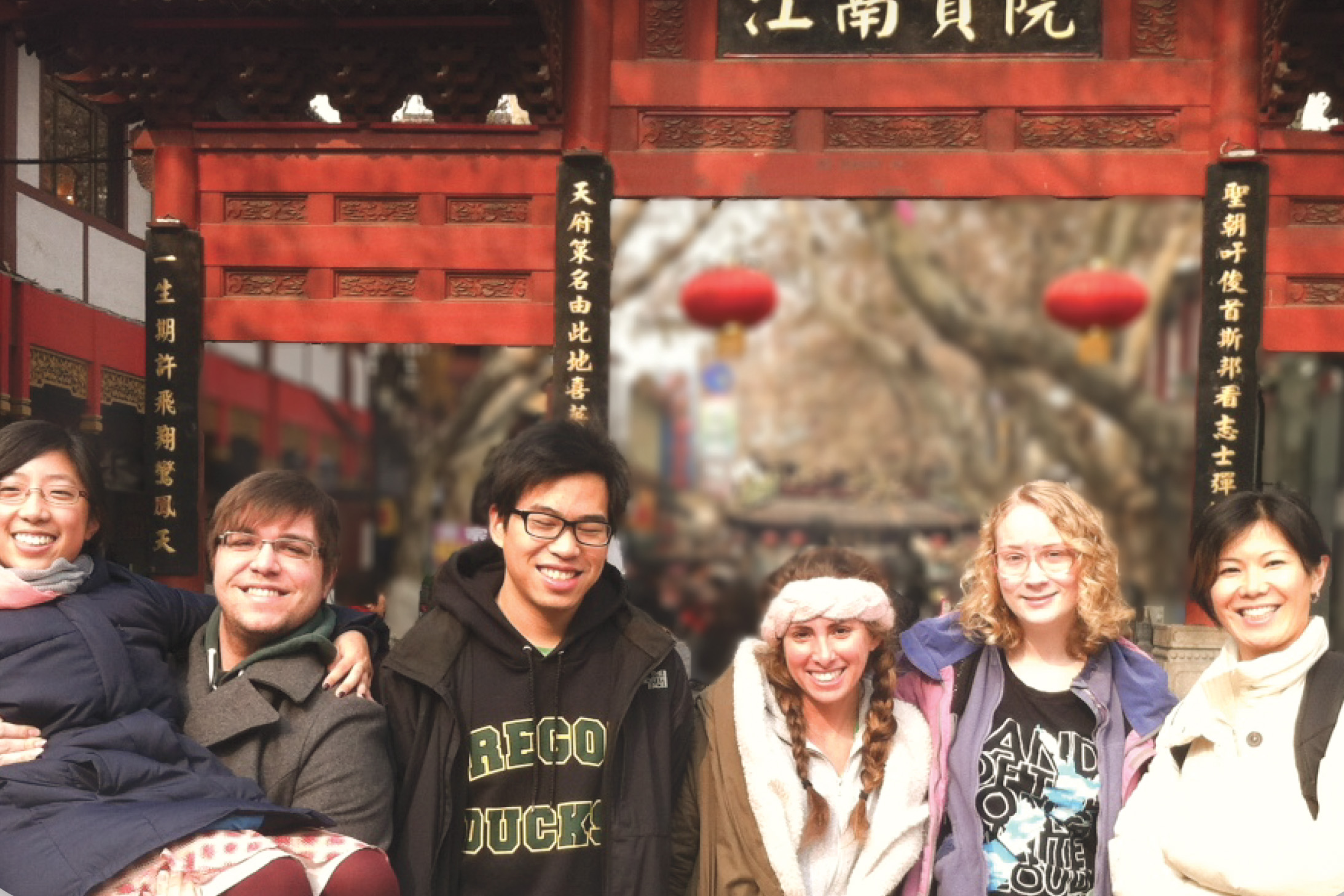View Content #17319
| Contentid | 17319 |
|---|---|
| Content Type | 5 |
| Title | The Intersection of Race, Ethnicity, and Language during Study Abroad by Genevieve Beecher, Chinese Flagship Program |
| Body | Study abroad has long been perceived as a resource for developing second language proficiency. Qualitative and quantitative research indicates that language proficiency is an important factor for students’ abilities to blend in with study abroad host communities (Rubin, 2004; Takamori, 2010; Wong & Xiao, 2010). Blending in with communities involves a number of identity factors, such as race, ethnicity and gender. Gwyn Kirk and Margo Okazawa-Rey (2010) argue that the single most visible signifier of identity is physical appearance: How we look to others affects their perceptions, judgments, and treatment of us. Questions such as “Where do you come from?” and questioning behaviors, such as feeling the texture of your hair or asking if you speak a particular language, are commonly used to interrogate people whose physical appearances especially, but also behaviors, do not match the characteristics designated as belonging to established categories (p. 94). Depending on the host culture, one’s physical appearance during the study abroad experience may affect how learners use pragmatics as a communication strategy. More specifically, students whose race or ethnicity is similar to the host culture may be able to physically blend in more than others or pass as locals. Passing is the ability of a person to be regarded as a member of a social group other than her own for the purpose of gaining social acceptance (Kirk & Okazawa-Rey 2010). As students study abroad, research shows that the use of pragmatics may be used as a communication strategy to pass or fit in with the host culture.
Students in the University of Oregon Chinese Flagship Program, along with Professor Zhuo Jing-Schmidt (far right) explore the intersection of race, ethnicity, and language during their year abroad. Consider the examples below: In a study conducted by Jill Rubin (2004), data was collected from four Chinese American students who studied abroad in China. Rubin states, “language skills remained essential in their ability to interact with Chinese citizens and blend in with the surrounding culture” (Rubin, 2004, p. 41). For example, one student said she was able to “pretend” that she was a local citizen when interacting with people in public, because she demonstrated high language proficiency. Her language skills were used as a tool for pretending, passing, and interacting with others as insiders. On the other hand, Rubin finds that students who struggle with their language skills see Chinese customs as “foreign” and do not try to engage as much in the culture as those who have high language skills. Rubin (2004) finds a correlation with language skills and the “othering” of Chinese culture, demonstrating that the students are cast as outsiders because of their lack of language proficiency and understanding of pragmatics. In another study, Ayako Takamori (2010) investigates how language and communication affects Japanese Americans living in Japan. She argues that speaking the local language does not mean that a person will fit in, but that by having an accent and speaking “strangely,” one is set apart from the citizens in that country. In this sense, it’s not what you say but how you say it. In the study, the Japanese-Americans living in Japan become more aware of how other people (both Japanese and foreigners) perceive them. As a result, they strategically change their communication patterns with people in Japan. For example, one female participant deliberately changes her language proficiency for speaking Japanese depending on where she is and with whom she is speaking. When speaking with Japanese mothers, she speaks Japanese with a heavy accent mixed with some English; when ordering from café attendants, she speaks only English; and when talking with her family, she speaks fluent Japanese with no accent. When asked why she changed her language level, she says that people treat her better or worse depending on if they think she is a foreigner or local. Her accounts demonstrate examples about how pragmatics plays a major role for shaping study abroad experiences. Study abroad certainly provides many opportunities for language learners to engage in communication; however, its outcomes may vary among students’ pragmatic experiences. As educators, we can include activities or discussions about how the intersection of race, ethnicity, and pragmatics affects the study abroad experience. References Kirk, G., & Okazawa-Rey, M. (2010). Women's Lives: Multicultural Perspectives. New York, NY: McGraw-Hill. Rubin, J. (2004, June). Going Inward by Going Abroad: Understanding Heritage Seeking for Chinese Americans Studying Abroad in China. Master's Thesis. Northwestern University. Takamori, A. (2010). Rethinking Japanese Ameican "Heritage" in the Homeland. Critical Asian Studies, 42 (2), 217-238. Wong, K. F., & Xiao, Y. (2010). Diveristy and Difference: Identity Issues for Chinese. Heritage Languge Learners from Dialect Backgrounds. Heritage Language Journal , 7 (2), 153-187. |
| Source | CASLS |
| Inputdate | 2014-02-23 15:25:58 |
| Lastmodifieddate | 2014-02-24 03:13:51 |
| Expdate | Not set |
| Publishdate | 2014-02-24 02:15:01 |
| Displaydate | 2014-02-24 00:00:00 |
| Active | 1 |
| Emailed | 1 |
| Isarchived | 0 |

